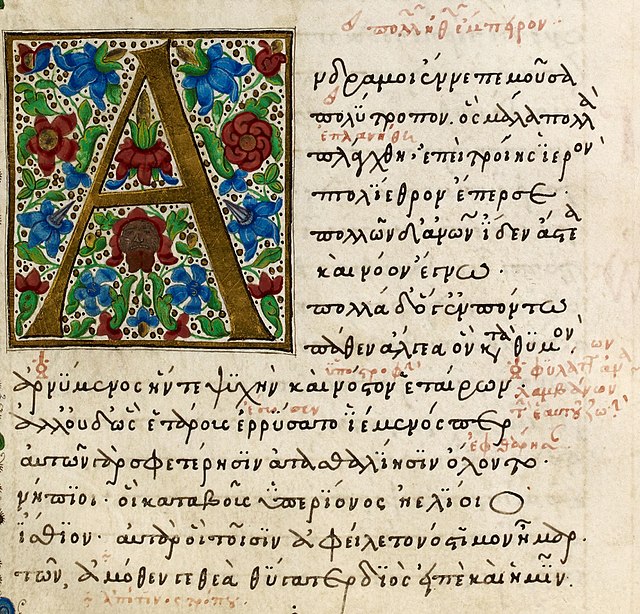Ogygia is an island mentioned in Homer's Odyssey, Book V, as the home of the nymph Calypso, the daughter of the Titan Atlas. In Homer's Odyssey, Calypso detained Odysseus on Ogygia for seven years and kept him from returning to his home of Ithaca, wanting to marry him.
Odysseus and Calypso in the caves of Ogygia. Painting by Jan Brueghel the Elder (1568–1625)
Calypso Cave in Xagħra, Gozo. According to Maltese tradition this was the cave of Calypso and Odysseus.
The Odyssey is one of two major ancient Greek epic poems attributed to Homer. It is one of the oldest extant works of literature still widely read by modern audiences. As with the Iliad, the poem is divided into 24 books. It follows the Greek hero Odysseus, king of Ithaca, and his journey home after the Trojan War. After the war, which lasted ten years, his journey from Troy to Ithaca, via Africa and southern Europe, lasted for ten additional years during which time he encountered many perils and all of his crewmates were killed. In his absence, Odysseus was assumed dead, and his wife Penelope and son Telemachus had to contend with a group of unruly suitors who were competing for Penelope's hand in marriage.
15th-century manuscript of Book I written by scribe John Rhosos (British Museum)
A mosaic depicting Odysseus, from the villa of La Olmeda, Pedrosa de la Vega, Spain, late 4th–5th centuries AD
Charles Gleyre, Odysseus and Nausicaä
Odysseus Overcome by Demodocus' Song, by Francesco Hayez, 1813–15






